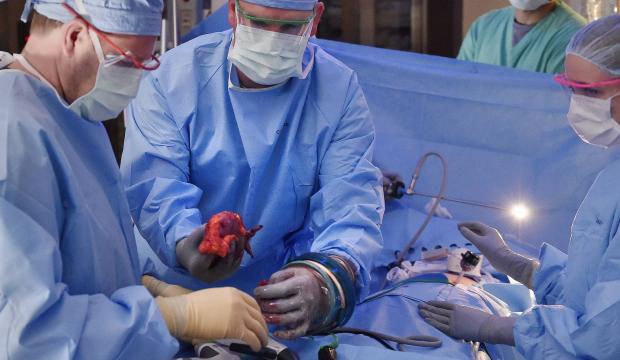Right now, more than 100,000 adult and pediatric patients in the U.S. are waiting for a life-saving kidney donation. Thirteen of them die each day while awaiting a transplant. However, a significant portion of kidneys from deceased donors are discarded because they literally don’t make the grade–a scoring system known as the kidney donor profile index (KDPI) that aims to predict how long a donor kidney will last in an intended recipient based on a variety of factors, including the donor’s age, size and health history.
Ethnicity and race are also part of that scoring system, explains Marva Moxey-Mims, MD, FASN, chief of the Division of Nephrology at Children’s National Health System. That’s partly because research over the years has suggested that kidneys from certain racial groups, including African-Americans, may not have the same longevity as those from other groups.
But race might not be the right marker to consider, Moxey-Mims counters. More recent studies have shown that a particular gene known as APOL1 might better predict risk of kidney-transplant failure. APOL1 high-risk variants are associated with a wide range of kidney diseases, with retrospective studies suggesting that they could be a key cause of failure in some donated kidneys. Although this gene is found almost exclusively in people of recent African descent, only about 13 percent of that population has high-risk APOL1 variants that might cause kidney problems.
“Instead of putting all African-American donor kidneys in one proverbial ‘bucket,’ we might be able to use this gene to determine if they truly carry a higher risk of early failure,” Moxey-Mims says.

(Image credit: Associated Press)
To more definitively confirm whether this gene could be used as a proxy for heightened kidney-failure risk, Moxey-Mims and colleagues across the country are participating in the APOL1 Long-Term Kidney Transplantation Outcomes Network (APOLLO) study, she and Dr. Barry Freedman explain in a perspective published online in Clinical Journal of the American Society of Nephrology. The APOLLO study will tap people accessing the hundreds of transplant centers scattered across the nation, prospectively genotyping deceased and living African-American kidney donors as well as kidney-transplant recipients to assess whether they carry high-risk APOL1 gene variants. Living donors and transplant recipients will be followed for years to gauge how their kidneys fare over time.
The researchers, Moxey-Mims explains, hope to answer whether the APOL1 high-risk gene variants in donor kidneys could replace race as a risk factor when calculating the KDPI score and whether recipients’ own APOL1 gene variants impact transplant failure risk. They also hope to better understand the risk to living donors.
“If a living donor has an increased risk of kidney failure,” she adds, “he or she can make a more educated decision about whether to donate a kidney.”
Moxey-Mims plays a pivotal role as the chair of the study’s steering committee, a group made up of the study’s principal investigators at all 13 clinical sites and the Data Coordinating Center, as well as the program officials from the National Institutes of Health funding institutes (National Institute of Diabetes and Digestive and Kidney Diseases, National Institute of Allergy and Infectious Diseases, and National Institute on Minority Health and Health Disparities). She will play a key part in helping to ensure that the study stays on track with recruitment goals, as well as publicizing the study at national meetings.
The study also includes a Community Advisory Council, a group made up of stakeholders in this study: 26 African-Americans who either have donated a kidney, received a kidney donation, are on dialysis awaiting a kidney transplant, or have a close relative in one of those categories. This group has helped to steer the study design in multiple ways, Moxey-Mims explains. For example, they have worked with study leaders to simplify the language on consent forms, helped to delineate which data study participants might want to receive when the study is completed, and helped to publicize the study in their communities by giving talks at churches and other venues.
Eventually, Moxey-Mims says APOLLO study researchers hope that clarifying the role of the APOL1 gene in kidney-transplant failure could lead to fewer discarded kidneys, which could boost the number of available kidneys for patients awaiting transplants.
“Down the road, the pool of patients awaiting transplant might have access to more kidneys because available organs aren’t getting a bad score simply because the donor is African-American,” she says. “We hope this might shorten the wait for some patients and their families who are desperate to get that call that a kidney is finally available.”




